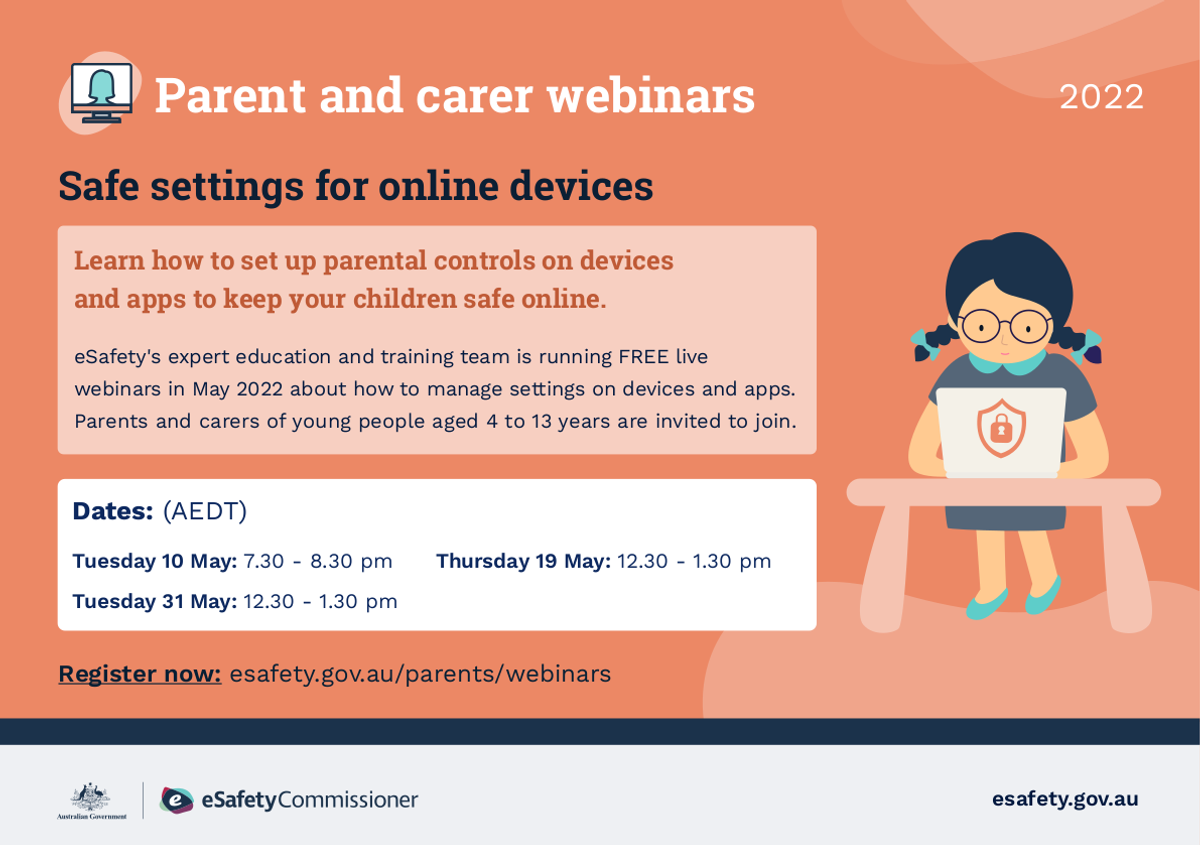Parenting Page
Parental Engagement

Parenting Page
Parental Engagement


NAPLAN is a point-in-time assessment that allows parents and carers to see how their child is progressing in literacy and numeracy against the national standard and compared with their peers throughout Australia. At the classroom level, NAPLAN provides additional information to support teachers’ professional judgement about student progress.
Here at St Joseph's, NAPLAN is an important element of Year 3 and 5 student assessment. However, we try to prepare students and keep the assessments low key so that they are not too anxious. The best preparation is good quality teaching and learning, and parental engagement in their child's learning, from Kindergarten.
On the NAPLAN days next week, remind your child to make sure their iPad is fully charged and they have a set of headphones each day.
The most resilient children and young people are those who rise to meet rather than retreat from the challenges presented to them. Perhaps it’s best to view the NAPLAN tests as good learning experiences rather than dreaded pressure tests.
One view commonly put forward about the NAPLAN tests is that they put undue pressure on children to perform in test situations. If so, then perhaps the best approach for parents and teachers is to help them handle the pressure rather than avoid it. The most resilient children and young people are those who rise to meet rather than retreat from the challenges presented to them. Perhaps it’s best to view the NAPLAN tests as good learning experiences rather than dreaded pressure tests.


Children and young people take their cues from their parents about how to handle many situations. American psychologist Martin Seligman discovered more than a decade ago, through his research into children’s thinking styles, how closely a child’s explanatory style mimics that of the parent they spend most time around. Optimistic parents beget optimistic kids, just as anxious parents can beget anxious kids. The impact of a parent’s explanatory style seems to be magnified somehow in small families where there are fewer voices to be heard.
As a parent, it helps your child if you take a positive view of the NAPLAN tests. It’s better to see them as learning opportunities for kids as well as opportunities to overcome any anxieties or nerves that these tests may bring on. It’s also worth remembering that many children don’t stress over these tests. The vast majority take them in their stride, wondering what all the fuss is about.
Whether your child stresses or takes them in his stride here are some tips to help prepare for the NAPLAN tests:
1. Take your cues from your child: If your child doesn’t worry about them then neither should you. Be careful not to create a problem that doesn’t exist by incessantly talking about, or worse, worrying about the test.
2. Focus on doing their best and trying hard:
Choose your words carefully when you speak with your kids. As with all their learning activities place your focus squarely on effort rather than results. The only pressure on kids should be to try hard rather than to do well.
3. Listen to any concerns they have: If your child confesses to some nerves then validate their feelings, rather than shut them down with a ‘get over it’ response. “Yes, sometimes tests can be a little scary, but they get easier every time you take them.” Use this as an opportunity to develop some emotional smarts, which starts with recognising how kids feel.
4. Give them some relaxation ideas: Anxious or nervous kids will benefit from some simple relaxation strategies. Taking some deep breaths, changing their thinking and exercising the morning of the test are some simple ways to help kids get some feeling of control.
5. Help them retain their perspective: One way to help children who become excessively anxious about an event is to ask what’s the worst thing that could happen? Okay, they may not do as well as they would like but the sun will still rise tomorrow, regardless of how well they do. Keeping perspective is a life skill that we all need to practise.
A positive, caring parent attitude is one of the best gifts you can give a child when they are apprehensive or nervous about approaching any different situation whether it’s going on school camp, joining a new club or sitting a NAPLAN test.
7. Normalise the testing as part of the school’s regular program. Just like school athletics or cross-country all children should be encouraged to attend, have a go and do their best. Allowing an anxious child to stay home can compound anxiety about testing.
8. Avoid purchasing commercially available NAPLAN practice test books, or using NAPLAN tutoring at home, to avoid increasing student anxiety.
6. Read the NAPLAN parent Information brochure This will help to prepare you so that you can answer your child's questions and provide reassurance.